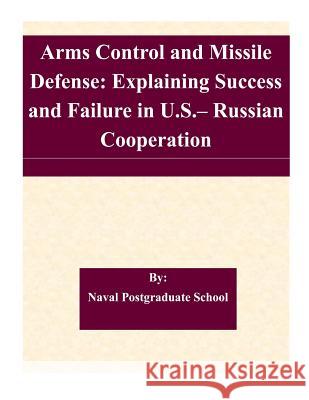Arms Control and Missile Defense: Explaining Success and Failure in U.S.- Russian Cooperation » książka
Arms Control and Missile Defense: Explaining Success and Failure in U.S.- Russian Cooperation
ISBN-13: 9781507579305 / Angielski / Miękka / 2015 / 82 str.
Russia can no longer be considered a world superpower, but it remains a great power in terms of strategic global security. Russia's importance is based on its nuclear arsenal and permanent seat on the United Nations Security Council. This research analyzed arms control and ballistic missile defense (BMD) in order to explain the success and failure of cooperation between the United States and the Russian Federation. Utilizing international relations theory, realist and constructivist frameworks were applied to two separate case studies: U.S.-Soviet cooperation on the Intermediate Nuclear Forces Treaty and U.S.-Russian failure to cooperate on BMD. Each case was started with material factors that opened the opportunity for the Soviet and Russian Federation elite to be responsive to new ideas. The elite then turned to the state's intellectual entrepreneurs to find new ideas. In the case of the Soviet era, the elite chose to cooperate due to the influence of the international organizations they were associated with. In the present day, the elite, many of whom have a background in the Soviet and Russian Federation secret service, have chosen to defect from cooperation due to the socialization received during their time as KGB or FSB officers.
Zawartość książki może nie spełniać oczekiwań – reklamacje nie obejmują treści, która mogła nie być redakcyjnie ani merytorycznie opracowana.











